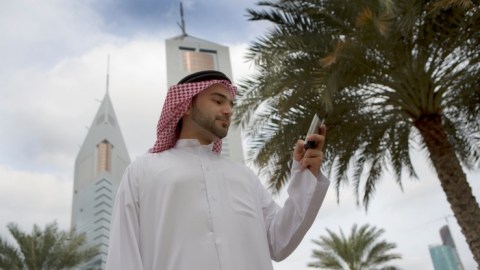The Mobile Phone and the Olive Tree

The far-reaching political changes that have occurred across the Middle East – while appearing to be almost the ultimate Black Swan event to the outside observer – might actually have been predicted by looking at the data about the rapid pace of technological development in the region. According to the World Economic Forum’s 10th annual Global Information Technology Report, at least five nations in the Middle East – the UAE, Qatar, Bahrain, Saudi Arabia and Tunisia – are among the world’s most networked economies. A well-developed technological infrastructure sets the stage for new types of connectedness, including the types of network effects made possible by Facebook and Twitter.
Malcolm Gladwell’s protests to the contrary, the recent upswelling in protests across the Arab world point to a fundamental lesson: the wide dispersion of networking technologies tends to create the conditions for democratization. What was most surprising about the World Economic Forum’s report (which was published in partnership with INSEAD) was not that the Nordic nations of Sweden, Finland, Denmark and Norway grabbed four of the top nine spots – but that the Arab nations of the UAE (#24), Qatar (#25), Bahrain (#30), Saudi Arabia (#33), and Tunisia (#35) all ranked higher than China (#36), India (#48), Brazil (#56) or Russia (#77) in terms of technological development. While these BRIC nations appear to have hit a brick wall, the same is not true of the most advanced Arab nations.
What’s going on here? How is it possible that nations that weren’t on many of our radars until just a few months ago are now among the top quartile of the world’s technology leaders? Aren’t these the same nations with the now-famous Internet Kill Switch? As Clay Shirky has pointed out, Internet-enabled networks enable angry people to coordinate their actions on a scale never before possible.
In some part, we have been insensitive to the types of change that technology makes possible – as well as the intense desire of people to participate in that change. We may give Dubai credit for its skyscrapers and man-made islands, but we don’t give credit to their mobile phone networks and their innovation initiatives. Saudi Arabia, in fact, drew special attention from the World Economic Forum for their YESSER e-government initiatives and ability to develop top technological talent on a national level. When we think about Saudi Arabia, we don’t usually think about these types of technological innovations.
Remember The Lexus and the Olive Tree – Thomas Friedman’s wonderful book from 10 years ago? Published around the same time that the World Economic Forum’s first report on Global Information Technology came out, Friedman’s book took a closer look at the rapid changes taking place in the developing world – and the choices the people in those nations faced. Ten years ago, the choice was between the Lexus – representing rapid Western economic change and globalization – and the Olive Tree, representing tradition, culture and community. Today, the choice is much different – it’s between the Mobile Phone and the Olive Tree: the desire for networked technological change or the desire for the status quo of unresponsive regimes.
What’s notable is how poorly Egypt (#74) and Libya (#126) fared in the rankings. These nations have chosen the Olive Tree and not the Mobile Phone, so there’s still a lot to be done to catch up with other leading Arab nations. If the last decade was a race to build out the technological infrastructure of the Middle East, the next decade will be all about creating richer kinds of social connectivity – the same kinds of social connectivity that led to the Twitter and Facebook revolutions in places like Tunisia.





